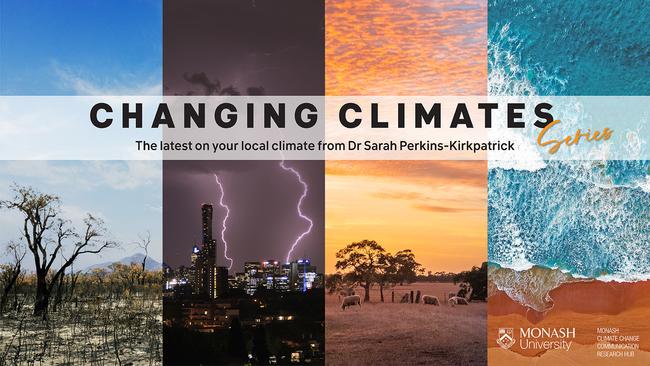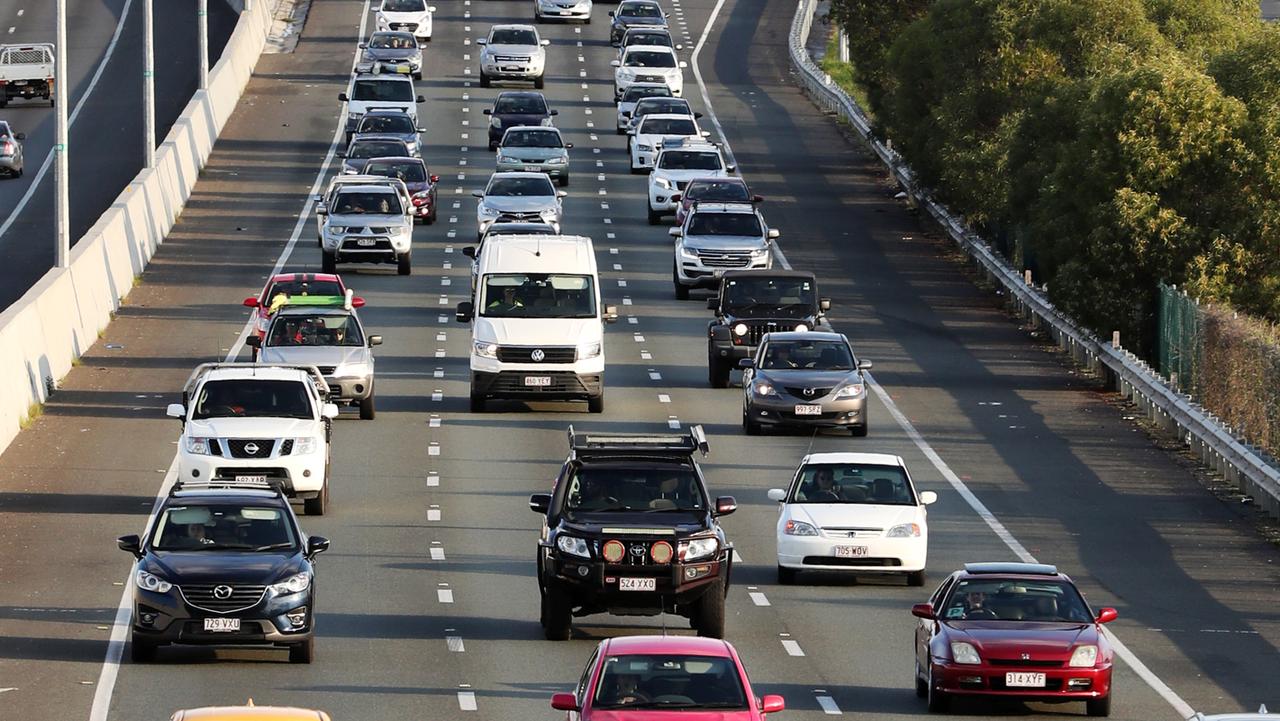It's time for some holiday cheer after a chaotic climate year
Host of Coffs Harbour's Changing Climates series, Dr Sarah Perkins-Kirkpatrick, takes a deep dive into Australia's climate in 2022. Plus, our weather outlook over the holiday season.

Hyperlocal
Don't miss out on the headlines from Hyperlocal. Followed categories will be added to My News.
Jingle bells are on the horizon and we're finally on the home stretch to the holiday season.
It's a time where friends and family come together to share scrumptious dinners and thrilling tales of the past 12 months.
But it is also an opportunity to reflect.
For many, the devastating extreme weather of 2022 has left behind chronic uncertainty and an abundance of emotions.
Images of locals desperately paddling through floodwaters appearing next to those of communities sheltering from extreme heat have become ubiquitous, but no less alarming.
The first three months of the year saw Australia match its hottest day on record, experience unprecedented rainfall, and witness the sixth mass bleaching of the Great Barrier Reef.
Since then, there has barely been a moment to take a breath between extreme weather events.
Starting in January, Melbourne sweltered through 17 days over 30C – an equal record, and well above the average of seven days.
In the last week of February, parts of southeast Queensland received around 80 per cent of their average annual rainfall.
This resulted in the flooding of around 15,000 homes across Brisbane.
Just a few days later, north Queensland experienced an extensive heatwave, with locations including Townsville, Charters Towers and Mackay breaking March temperature records.
The system then moved south dumping buckets of rain across northern NSW, inundating low-lying towns like Lismore over and over again.
Sydney was also hit with rain, with its iconic harbour turning muddy brown.
With seven consecutive months of above average rainfall in NSW, it only took 279 days for 2022 to be crowned Sydney's wettest year on record.
More recently, the ACT recorded its wettest October in 88 years, with rain on 19 out of the 31 days of the month.
And, in the same month, parts of arid outback South Australia, such as Woomera received 60 per cent of their annual rainfall in just two days.

Reigning in the wild weather
Rainfall across South Australia and Australia's eastern seaboard is likely to settle in the coming months, with most regions expected to experience close to median rainfall.
In part, this is driven by the easing of our third consecutive La Nina, which is expected to ease early next year.
For example, Coffs Harbour has around a 65 per cent chance of exceeding median rainfall.
Even though we've still got a little more rain on the way, regions of NSW and southern Queensland also have above normal fire potential over the coming summer.
And the recent State of the Climate report highlights that these increasing erratic weather and record-breaking extremes – including heavy rainfall, heatwaves, bushfires and drought – will become increasingly commonplace.
This is because we are seeing increasing concentrations of greenhouse gases in our atmosphere, which trap heat and create a warming effect.
Staying merry and bright
With more extreme weather expected in the future, connecting with your community over the holiday season is just as important as eating, sleeping, and staying hydrated.
Climate anxiety is a growing concern among Aussies, which can lead to feelings of worry, upset, anger, sadness, and distress, especially at this time of year.
So, while you're sitting around the dinner table consuming copious amounts of pavlova, check in with friends and family and make sure they feel supported.
There are also lots of actions we can take to limit our environmental footprint over the festive season.
When it comes to gifts, think eco-friendly and sustainable – thrifting, regifting or making something at home does wonders for the planet and our pockets.
We can also make the most of the warmer weather and move around on foot or by bike, helping burn off the tasty treats, and reduce transport emissions in the process.
Sending you all merry holiday cheer, as we wrap up our Changing Climates columns for this year.
Want more information on how your climate is changing? Check out the last article in this series.
Dr Sarah Perkins-Kirkpatrick is a climate scientist at the University of New South Wales.
This column is part of a collaboration between Monash University and News Corp to deliver hyperlocal weather and climate information.

